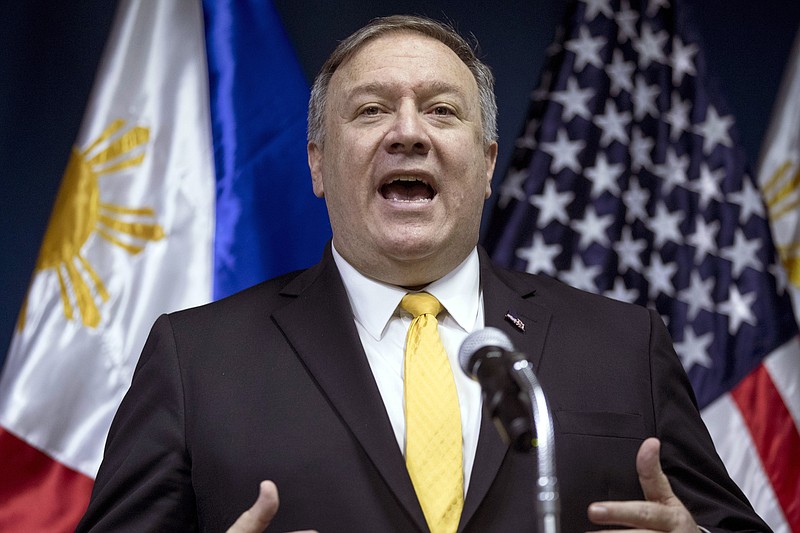WASHINGTON (AP) — A seemingly belligerent tweet by Secretary of State Mike Pompeo about pulling American diplomats out of Venezuela prompted further criticism Tuesday of an administration that has sent mixed messages about what it might do as it seeks the ouster of the South American nation’s leader.
Pompeo said in a late night message that the presence of American diplomats had become a “constraint” on U.S. policy in Venezuela. It was widely interpreted as suggesting the administration might use military force to oust President Nicolas Maduro, though a senior administration official said later it likely had a more benign message.
It was the latest example of the conflicting messages from the administration as it seeks to convince Maduro to hand over power to Juan Guaido, the opposition leader of the National Assembly. Officials have repeatedly said “all options are on the table” while insisting the U.S. is relying on diplomatic and economic measures to achieve its goal.
The disconnect is seen by some as helping Maduro, who uses the potential for U.S. military intervention to cast himself as an underdog facing up to an imperialistic America — a potent message in Latin America.
“Over the last month, the tone has gotten much more intense and out ahead of what’s actually happening on the ground and out ahead of what they say they are willing to do,” Ted Piccone, a Latin America expert at the Brookings Institution in Washington, said of the Trump administration. “It creates an environment in which Maduro and his allies can solidify their support.”
Pompeo tweeted late Monday that the U.S., which recognizes Guaido as Venezuela’s interim president, was withdrawing its remaining diplomats because their continued presence “has become a constraint on U.S. policy.” Asked about it later, the secretary said the embassy was being closed because of deteriorating conditions in a country that has been hit with nationwide power outages for nearly a week.
“The Maduro regime’s horrific leadership over the last years has just made life there so difficult, it began to make it more difficult for the United States to take the actions that it needed to do to support the Venezuelan people,” Pompeo said in an interview with KTRH, a Houston radio station. “So we concluded this was simply the right step to take and this was the right time to take it.”
Elliott Abrams, the special U.S. envoy for Venezuela, told reporters he didn’t want to “parse the secretary’s words” but believes Pompeo was concerned about the safety of the diplomatic staff if conditions worsen.
Asked if the U.S. would consider military action, Abrams repeated a now familiar refrain: “I can only repeat what the president said: All options are always on the table.”
Yet Trump, Pompeo, Vice President Mike Pence and Abrams have all said they are not pursuing military options.
“That is not the path we are choosing to follow,” Abrams said just last week. “The path we’re choosing to follow now is the one that has been often described, which is diplomatic, economic and financial pressure in an effort to support the people of Venezuela.”
And Pompeo’s late Monday tweet followed a lengthy and caustic statement read to reporters in the State Department briefing room in which Pompeo slammed Maduro for promising a “socialist paradise” but producing a “hell” with the backing of Cuba and Russia. “He delivered on the socialism part, which has proved time and time again is a recipe for economic ruin,” Pompeo said. “The paradise part, not so much.”
Regional experts and critics on Capitol Hill said the administration’s mixed signals have muddled the diplomacy.
“They need to sit back and let the Venezuelans handle this without the rhetoric,” Piccone said. “Otherwise you give Maduro more oxygen to rally his base both within Venezuela and outside. It gives Maduro more oxygen to rally his base so that it becomes less about his failings than stopping the Yankee imperialists from taking our oil.”

